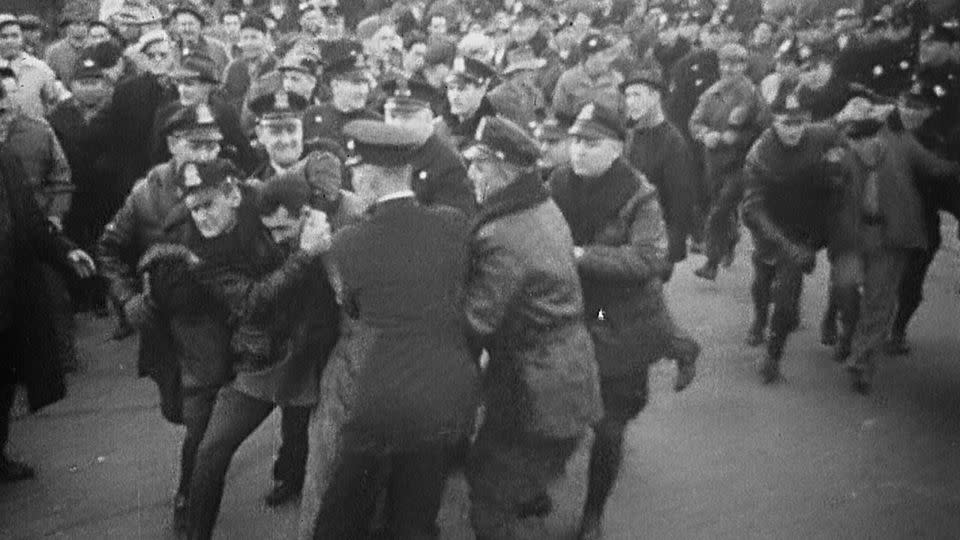‘Power’ tackles the politics that shape policing from its origins through the present

Tackling a complicated subject in a provocative way, “Power” looks at the historical factors that have shaped modern policing, through the prism of the political movement that has grown around the deaths of Black people at the hands of police. As works of advocacy go, director Yance Ford’s film, premiering on Netflix, begins from the premise that any true effort to implement reform must spring from seeing the issue in its full context.
Ford seeks to accomplish that by tracing the origins of policing to the slave patrols of the 1830s, and the gradual militarization of police across different presidential administrations spread over decades. The question then turns to the objectives of that control, and the underlying tension stemming from the fact police possess what experts describe as a monopoly on sanctioned violence in civilian life.
As the historians interviewed note, the roots of policing can be seen in where and how those resources are brought to bear. Weaving in a wide variety of footage, “Power” goes back to the political uprisings of the 1960s and traces the evolution of policing – and the interests it serves – through to the present, and the questions raised time and again by the deaths of Black men, including George Floyd, Eric Garner and Michael Brown (to name a mere few).
In his director’s statement, Ford cites Floyd’s death in 2020, when he watched a police officer – thanks to the relatively new ubiquity of cameraphones – “commit murder on television.” The ensuing months prompted him to seek to dissect the basic issue of “what, exactly, do the police exist to do?”
“Power” makes an intellectual argument, but it’s built on a visceral foundation, purposefully bleeding from past generations into the current one.
What the film doesn’t quite do, and realistically couldn’t in a mere 85 minutes, is present a true solution, other than to frame the issue through a quote from abolitionist Frederick Douglass, who said, “Power concedes nothing without a demand.”
Notably, “Power” dovetails with a pair of PBS documentaries that add to this conversation: Frontline’s recent “Documenting Police Use of Force,” and American Experience’s “The Riot Report,” a detailed look at the 1968 Kerner Commission report commissioned by President Lyndon Johnson, which identified the role of racism in the urban unrest of the time.
“They told the nation what exactly the problem was, even if meant that nobody was going to listen to them,” journalist Jelani Cobb, who co-wrote that documentary, says of the commission.
More than a half century later, “Power” makes another demand to look at policing in a way that acknowledges how we got here, while hoping to begin a conversation about what steps to take next.
None of these films provide easy answers. What they do offer, for those willing to consider it, is a place to start looking.
“Power” premieres May 17 on Netflix.
“The Riot Report” premieres May 21 on PBS.
For more CNN news and newsletters create an account at CNN.com

